SUMMARY
This is AI generated summarization, which may have errors. For context, always refer to the full article.
![[New School] The real world is a hoax](https://www.rappler.com/tachyon/2021/08/NS-real-world-1280.jpg)
New School features opinion pieces by young writers, highlighting youth issues and perspectives.
I am currently a part-time data encoder in a government agency here in my hometown. This is the third job I’ve taken since June 2020, when I started working to pay my bills. Compared to my previous jobs, the salary here is pretty decent. They pay you more than the daily minimum wage – way beyond the numbers I received from my government scholarship per semester.
One morning, as I was encoding an application into our online system, a thought bugged me. When did it come to pass that life outside of school is considered the “real world” while life inside of it is not?
I couldn’t wrap my head around the idea that schools, despite hosting an ivory tower, were separated from the inner workings of society. How could schools have or be a reality sui generis when it is, to begin with, an objectification of the social order which dictates the so-called real world?
What is the criteria for manufacturing this real world anyway? Who gets to reify it?
Through neoliberalism, the ruling class does. Neoliberalism seeks to privatize the public, deregulate the corporate, and lower taxes paid for public spending. In short, it emphasizes market relations across society. It conditions us to think that the crises outside of our schools – the increased prices of goods and public transportation fares, low wages, land grabbing, environmental degradation, poverty, unemployment, misogyny, and human rights violations, among others – are beyond our realities as students.
![[New School] The real world is a hoax](https://img.youtube.com/vi/wh2tqHn3Eyg/sddefault.jpg)
A middle class fresh graduate whose degree was not profitable for the neoliberal economy once said, “Only when you finish college and start looking for a job will you finally get a taste of the real world.” If that was true, then what about the reality of students who never got the chance to finish high school (like most of the applicants to our agency), or those who ended their life because of the abovementioned crises?
The danger with this “real world” construct lies in its assertion that schools are nothing but transient safe shelters secluded from society. If you come from a poor household, the best way for you to survive (sugarcoated as “succeed”) in the real world is by formally acquiring essential survival skills and tools from the neoliberal “incubator.”
The real world is harsh. You are not always assured of employment, let alone a stable middle class life, even if you boast of a UP diploma. The real world is unforgiving. If you don’t overwork, then you won’t experience the bare minimum by 30. Also, if you don’t save for yourself, then who will? This construct validates the “correctness” of the free market, including competition for upward social mobility. The emergent victor is the one who overcomes the “real world,” who drags the self out of poverty, who “outsmarts” the system. A run of rags to riches.
The real world is a product (and producer) of neoliberal discourse. So are most of our schools. You will discover traces of this discourse in the curriculum. The cafeteria method of selecting GE courses in UP before is one example of this.
The school is not a sphere independent of society. In fact, it is a microcosm of society. It legitimizes society. It is a field linked to society since it benefits from and validates its social, economic, political, and cultural structures. Like the “real world,” it also has its own capital. As much as it prepares you to survive, it also replicates the challenges of the outside. Have you ever thought of the reason why we battle for an honor roll post? Hoard extra-curricular awards? Cheat during exams? Compete among our ranks? Of course, for social and cultural capital.
The bigger your status and the wider your power is in the incubator, the higher your chances are for personal advancement and prioritization. When you are prioritized, opportunities easily come your way. Your network broadens. As a result, you connect, to a certain degree, to people of status and power. Do you want a good job after college? Contact someone from the company you have worked with before. Are you interested in paid training? Talk to the supervisor who spoke at a congress you attended. Even if you don’t end up as cum laude, you will still fare better than the rest of your peers. It is due to your system of privilege.
Your cultural capital does the same thing. If you are excellent in English (embodied capital), the global economy will hire you. But you can’t rely on language alone. You also need skills (technical capital) to perform the job. Don’t forget your endurance (emotional capital). The “real world” is demanding. It will consume most of your time and energy. So you need to be very good at handling pressure. Sometimes, employers will look for an applicant who can smile for days. This is what you call “emotional labor.” Then you convert all these capitals into what is known as the institutionalized capital, or your resume or CV. If you succeed in getting the job, congratulations! You can now start accumulating your objectified capital, or material wealth.
The school is as real as it can get. Just because you think you don’t experience crises like the ones faced by the basic masses outside, doesn’t mean they don’t linger inside our educational institution. They do, but only in different forms. In my two years in UP Visayas, I experienced fare hikes twice. I also had to jump from one apartment to another due to budget constraints. Most of the time, I no longer eat breakfast and lunch because my P1,000 a week is not enough. People close to me know my economic struggles very well.
We don’t live in a bubble. Even as students, we, too, face crises bigger than ourselves. We are forced to participate in an anti-poor and anti-people system reinforced by the government’s neoliberal schemes (an example is your K-12). Neoliberalism paints the hardships only of those in the lower strata as realities which we should strive not to inherit, as if social structures permit us to do so. Thus, we must work hard to survive. But neoliberalism never told us that the exploitation by the ruling class is also a reality of the real world. That is why in UP we are always encouraged to go out of the university to integrate with the masses. At the end of the day, we are bound to the chains that bind them.
On Monday, I’ll be back at the office, trying to finish the pile of applications sitting on the cabinet, and perhaps imagining the rough road ahead – a year before I finally leave the incubator in Miagao. – Rappler.com
Phillippe Angelo T. Hiñosa is a student of Sociology at the University of the Philippines Visayas. He is currently the lead convenor of Rise for Education-Panay and the chairperson of the UPV College of Arts and Sciences Student Council.
Voices features opinions from readers of all backgrounds, persuasions, and ages; analyses from advocacy leaders and subject matter experts; and reflections and editorials from Rappler staff.
You may submit pieces for review to opinion@rappler.com.
Add a comment
How does this make you feel?

![[OPINION] Education for life: Weaving ethics in all subject areas](https://www.rappler.com/tachyon/2024/03/Education-for-Life-Weaving-Ethics-in-All-Subject-Domains.jpg?resize=257%2C257&crop_strategy=attention)
![[OPINION] Limited intake of international students: Is Canada knee-capping its future?](https://www.rappler.com/tachyon/2024/02/tl-canada-forgeign-student-cap-02232024-2.jpg?resize=257%2C257&crop_strategy=attention)
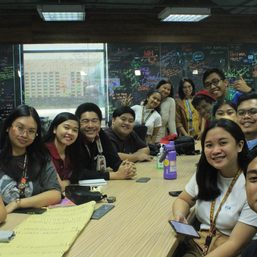
![[Rappler Investigates] Who’s fooling who?](https://www.rappler.com/tachyon/2024/02/rodrigo-sara-duterte-2019.jpeg?resize=257%2C257&crop=167px%2C0px%2C900px%2C900px)
![[EDITORIAL] Ang break-up Valentines ni Sara at Marcos](https://www.rappler.com/tachyon/2024/02/animated-2024-valentines-day-political-divorce-carousel.jpg?resize=257%2C257&crop_strategy=attention)
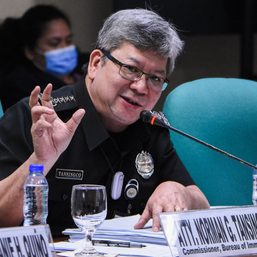

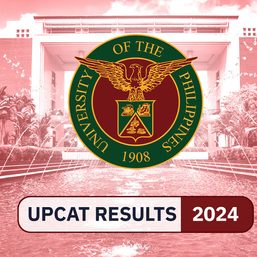
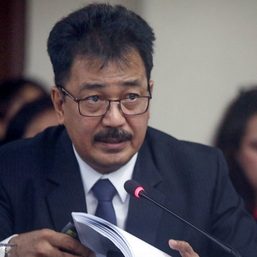
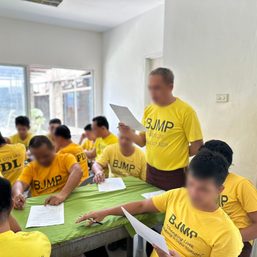
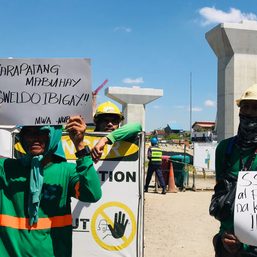

![[Episodes] Fairness to freelancers](https://www.rappler.com/tachyon/2024/02/Freelance-Writers-Guild-of-the-Philippines-rate-guide.jpg?resize=257%2C257&crop=217px%2C0px%2C720px%2C720px)
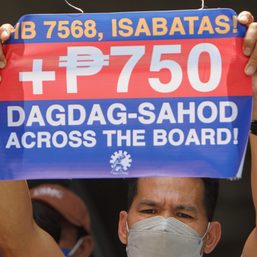
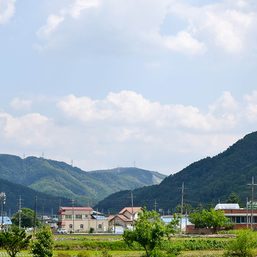
![[ANALYSIS] A new advocacy in race to financial literacy](https://www.rappler.com/tachyon/2024/04/advocacy-race-financial-literacy-April-19-2024.jpg?resize=257%2C257&crop_strategy=attention)


![[In This Economy] Can the PH become an upper-middle income country within this lifetime?](https://www.rappler.com/tachyon/2024/04/tl-ph-upper-income-country-04052024.jpg?resize=257%2C257&crop=295px%2C0px%2C720px%2C720px)
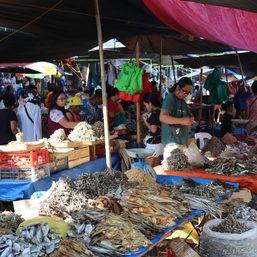
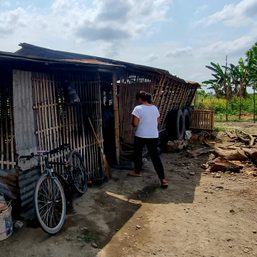
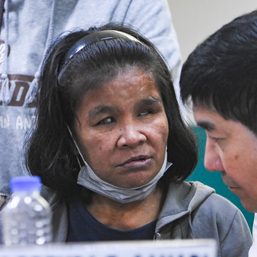
![[WATCH] Spoil me but respect me: A sugar baby’s story](https://www.rappler.com/tachyon/2024/03/titlecard-03.jpg?resize=257%2C257&crop_strategy=attention)
There are no comments yet. Add your comment to start the conversation.